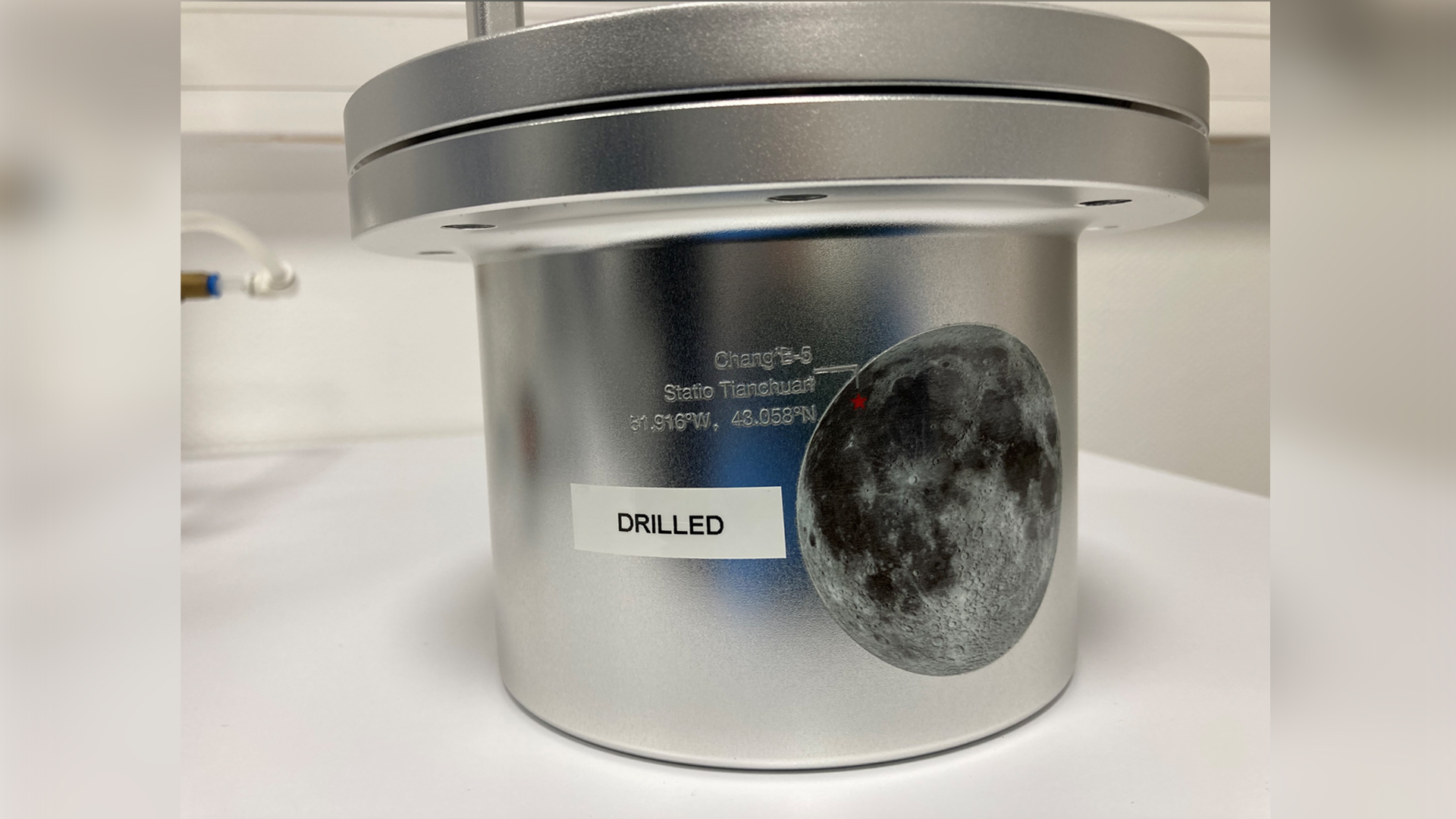
An air-sealed container carrying China's lunar sample gifts to France. Photo provided by the French National Center for Scientific Research to Science and Technology Daily.
An air-sealed container carrying China's lunar sample gifts to France. Photo provided by the French National Center for Scientific Research to Science and Technology Daily.
China's lunar sample gifts to France have been transported to the National Museum of Natural History in Paris in air-sealed containers, China's Science and Technology Daily reports.
The samples, which totaled 1.5 grams, were given to France for scientific research during French President Emmanuel Macron's visit to China in April.
The lunar samples China delivered to France originate from the drilled samples and surface samples returned by its Chang'e-5 mission in December 2020 from the Statio Tianchuan in the northeastern Oceanus Procellarum on the near side of the moon.
According to China's laboratory analyses, it was found that the samples are approximately 2 billion years old, significantly younger than those retrieved by the Apollo mission, which are estimated to be between 3 and 4.4 billion years old. This discovery suggests that the moon had active volcanoes as recently as 2 billion years ago, a timeframe that was previously thought to be even older.
Additionally, Chinese scientists have found high water content in lunar soil samples brought back by the country's Chang'e-5 mission.
The gift samples will be studied in a joint effort by the French National Center for Space Studies (CNES), the French National Center for Scientific Research (CNRS), the Paris Institute of Earth Physics (IPGP) and the University of Paris-Sorbonne for the next five to seven years.
China also plans to carry payloads from the European and French space agencies for the next lunar mission, Chang'e-6, in 2024.